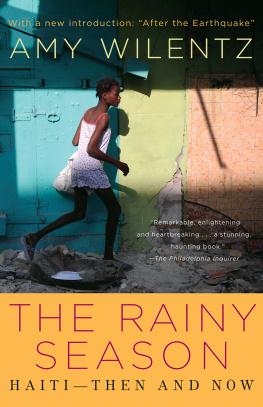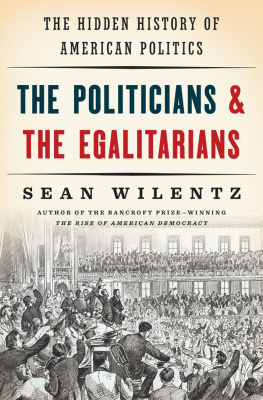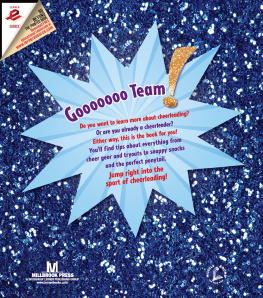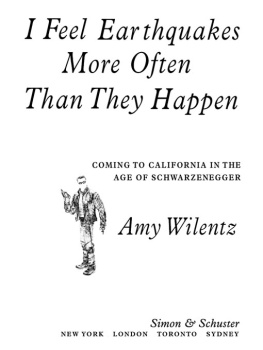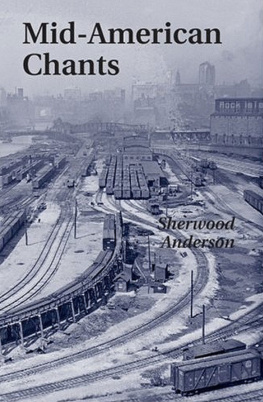Wilentz - Chants Democratic
Here you can read online Wilentz - Chants Democratic full text of the book (entire story) in english for free. Download pdf and epub, get meaning, cover and reviews about this ebook. year: 2004, publisher: Oxford University Press USA - OSO, genre: Politics. Description of the work, (preface) as well as reviews are available. Best literature library LitArk.com created for fans of good reading and offers a wide selection of genres:
Romance novel
Science fiction
Adventure
Detective
Science
History
Home and family
Prose
Art
Politics
Computer
Non-fiction
Religion
Business
Children
Humor
Choose a favorite category and find really read worthwhile books. Enjoy immersion in the world of imagination, feel the emotions of the characters or learn something new for yourself, make an fascinating discovery.

Chants Democratic: summary, description and annotation
We offer to read an annotation, description, summary or preface (depends on what the author of the book "Chants Democratic" wrote himself). If you haven't found the necessary information about the book — write in the comments, we will try to find it.
Wilentz: author's other books
Who wrote Chants Democratic? Find out the surname, the name of the author of the book and a list of all author's works by series.
Chants Democratic — read online for free the complete book (whole text) full work
Below is the text of the book, divided by pages. System saving the place of the last page read, allows you to conveniently read the book "Chants Democratic" online for free, without having to search again every time where you left off. Put a bookmark, and you can go to the page where you finished reading at any time.
Font size:
Interval:
Bookmark:
CHANTS DEMOCRATIC
New York City and the Rise of the American Working Class, 17881850
Twentieth-Anniversary Edition
SEAN WILENTZ


Oxford New York
Auckland Bangkok Buenos Aires Cape Town Chennai
Dar es Salaam Delhi Hong Kong Istanbul Karachi Kolkata
Kuala Lumpur Madrid Melbourne Mexico City Mumbai Nairobi
Sao Paulo Shanghai Taipei Tokyo Toronto
Copyright 1984, 2004 by Sean Wilentz
First published by Oxford University Press, Inc., 1984
First issued as an Oxford University Press paperback, 1986
Oxford University Press Twentieth-Anniversary Edition issued 2004
Published by Oxford University Press, Inc.
198 Madison Avenue, New York, New York 10016
www.oup.com
Oxford is a registered trademark of Oxford University Press
All rights reserved. No part of this publication may be reproduced,
stored in a retrieval system, or transmitted, in any form or by any means,
electronic, mechanical, photocopying, recording, or otherwise,
without the prior permission of Oxford University Press.
Library of Congress Cataloging-in-Publication Data
Wilentz, Sean.
Chants democratic: New York City and the rise of the American working class, 17881850 /
Sean Wilentz20th anniversary ed.
p. cm.
Includes bibliographical references and index.
ISBN 019-517450-X (cloth)
ISBN 019-517449-6 (pbk.)
1. Working classNew York (State)New YorkHistory.
2. New York (N.Y.)History.
I. Title.
HD8085.N53W54 2004 305.5'62'0974710903dc22 2004054794
1 3 5 7 9 8 6 4 2
Printed in the United States of America on acid-free paper
To Eli Wilentz
Jeanne Campbell Wilentz
Christine Stansell
This is an extended historical essay on capitalism and democracy in the United States. Between the American Revolution and the completion of emancipation in 1865, this country experienced a series of profound social changes, among them the emergence of a working class. In New York Citythen consisting only of what we know today as lower Manhattanthese changes occurred with unusual force and rapidity: more than a decade before the Civil War, the working-class presence was established in the American metropolis. Like the rise of the city itself, the rise of an American working class in New York raised fundamental questions about the character of the democratic Republicquestions that would be asked again, across the nation, over the rest of the nineteenth century.
Now and then, Lionel Trilling once wrote, it is possible to observe the moral life in process of revising itself. Such moral revisions were basic to the history of the city in the age of Jefferson and Jackson, as New Yorkers came to redefine the meaning of America in the light of new exigencies of life and labor. What follows is a social interpretation of these revisions and what they tell us about the American past.
My interest in these matters dates back to my undergraduate years, when I was fortunate enough to be a history major at Columbia College. After all this time, it is a pleasure to thank David Rothman, James Shenton, and Lee Benson for their early instruction and abiding encouragement. I am also pleased to thank the history dons of Balliol College, Oxfordespecially Richard Cobb (now of Worcester), Maurice Keen, and Colin Lucasfor their patience and their enthusiasm.
My deepest intellectual debt is to David Brion Davis. From the start, Professor Davis thought that this project was worth doing, and he supported it generously with a combination of tough criticism and fresh suggestions. More than anyone, it was he who convinced me that a history of labor must also in large measure be a history of the life of the mind. To glance at these pages is to see the influence of his own efforts at coming to terms with the age of revolution.
My other teachers at Yale also helped me enormously with advice and counsel. I am particularly grateful to C. Vann Woodward, Paul Johnson, Peter Gay, and John Merriman for extended hours of conversation about the possibilitiesand the limitsof this undertaking.
At Princeton, I have been lucky to be able to profit from an extraordinarily stimulating assembly of historians. Special thanks to David Abraham, Natalie Zemon Davis, Stanley Katz, Arno Mayer, John Murrin, Daniel Rodgers, Carl Schorske, and Lawrence Stone for their camaraderie and their comments on an earlier draft. Thanks, also, to my skeptical graduate students, who sent me back to the manuscript even after I thought it was done.
The Mrs. Giles M. Whiting Foundation, the Yale Center for the Study of American Art and Material Culture, the Council on West European Studies, and the Princeton University Committee on Research in the Humanities and Social Sciences contributed important financial assistance to help me complete my research and writing. The librarians and their staffs at Columbia, Yale, and Princeton have been unfailingly helpful over the years. For making their place of work mine as well, I owe a special debt to the librarians and staff of the New-York Historical Society and to Idilio Pena Garcia and his staff at the Municipal Archives and Record Center.
Florence Thomas typed several versions of the manuscript, including my dissertation, with accuracy and abundant good cheer, keeping my spirits up during the rough patches. Andrew Bechman, Dina Copelman, Elizabeth Farrar, Steven Jaffee, Darcy Lebau, and Louis Masur gave some invaluable aid during the final stages of research and proofreading.
Several friends and colleagues read and commented on some portion of the manuscript. I am especially grateful to Alan Dawley, Eric Foner, Eugene Genovese, Herbert Gutman, Paul Johnson, Bruce Laurie, Michael Merrill, and David Montgomery for their help. Earlier versions of various chapters were scrutinized, to my great benefit, by the Columbia University Seminar on the History of the Working Class, Professor Gutmans seminar at the City University Graduate Center, the New York Institute for the Humanities, and a workshop at the University of Pennsylvania. My fellow researchers Elizabeth Blackmar, Peter Buckley, and Paul Gilje shared in the inevitable trench humor and guided me to several important sources. My conversations with Fred Siegel and Paul Berman made me think about the larger political and literary issues at stake; they helped prompt me to draw my title and my epigraphs from Walt Whitman, Leaves of Grass (Boston, 1860). Walter Hugins graciously sent me his raw data on the Working Men, without which this study would have been far poorer.
For several years, Alfred Young has been an irreplaceable friend of this book and its author. His suggestions on revisions forced me to go for broke, even when I was timid; with his unmatched knowledge of the early history of American labor, he alerted me to ideas and sources I would otherwise have overlooked.
Otto Sonntag copy-edited the typescript with consummate mastery and precision. Leona Capeless and the staff at Oxford University Press pretended to be unconcerned when I telephoned or arrived at the office with news of yet another delay. So did my editor, Sheldon Meyer. To all, my deep appreciation for shepherding me through with unflagging optimism and the highest of editorial standards.
Along with James Wilentz, the people whose names are on the dedication page are those to whom I owe the most. Their intellectual contributions, apart from everything else, have been incalculable. My parents sensitivity to the past and their dislike of cant have helped keep me honest; their fortitude, in hard times and good, has been an inspiration. I first met Christine Stansell on a winters day at the Historical Society. Since then she has shared her notes, her brains, her freethinking passion to get things right. The rest still takes my breath away.
Next pageFont size:
Interval:
Bookmark:
Similar books «Chants Democratic»
Look at similar books to Chants Democratic. We have selected literature similar in name and meaning in the hope of providing readers with more options to find new, interesting, not yet read works.
Discussion, reviews of the book Chants Democratic and just readers' own opinions. Leave your comments, write what you think about the work, its meaning or the main characters. Specify what exactly you liked and what you didn't like, and why you think so.

